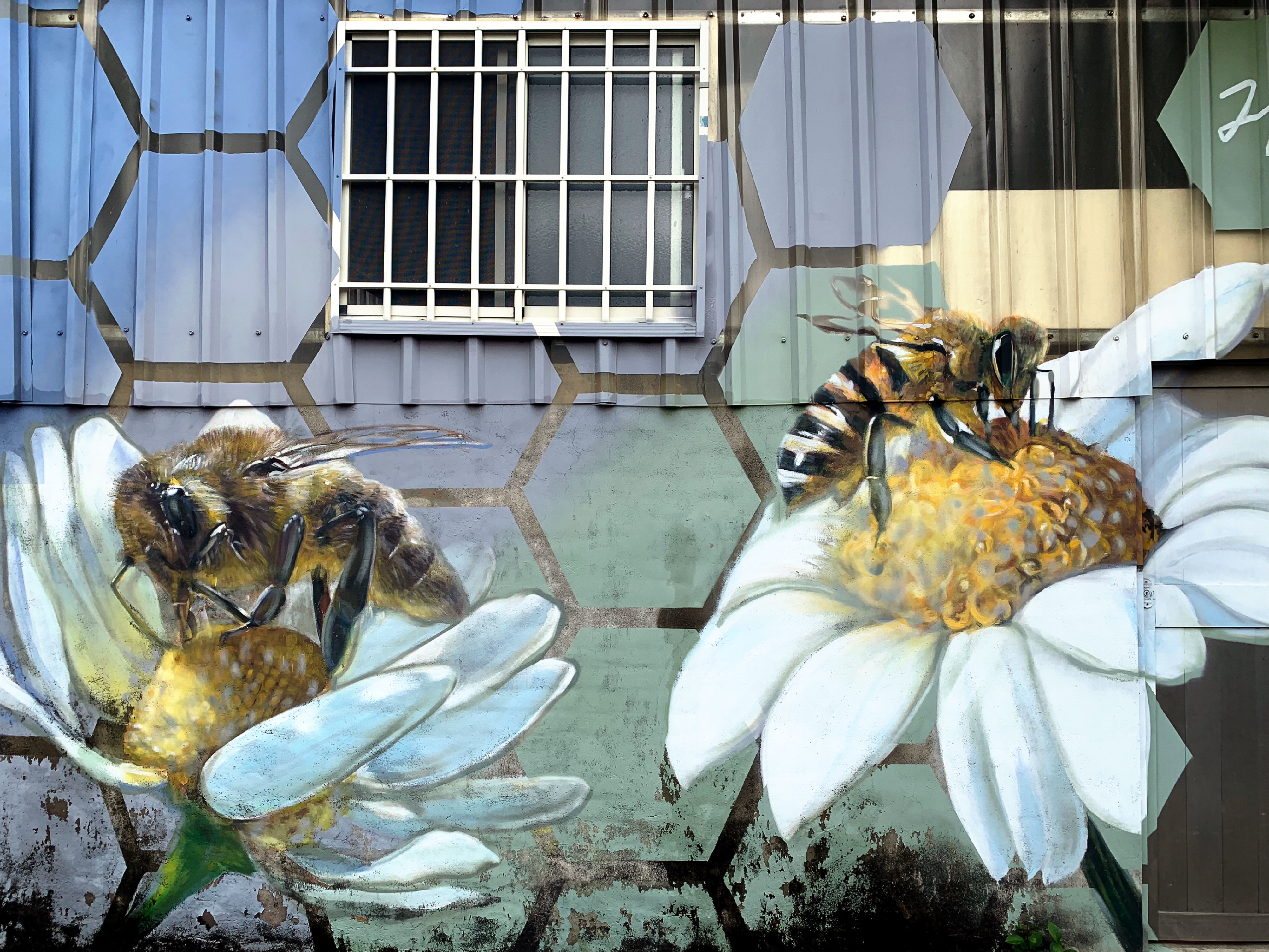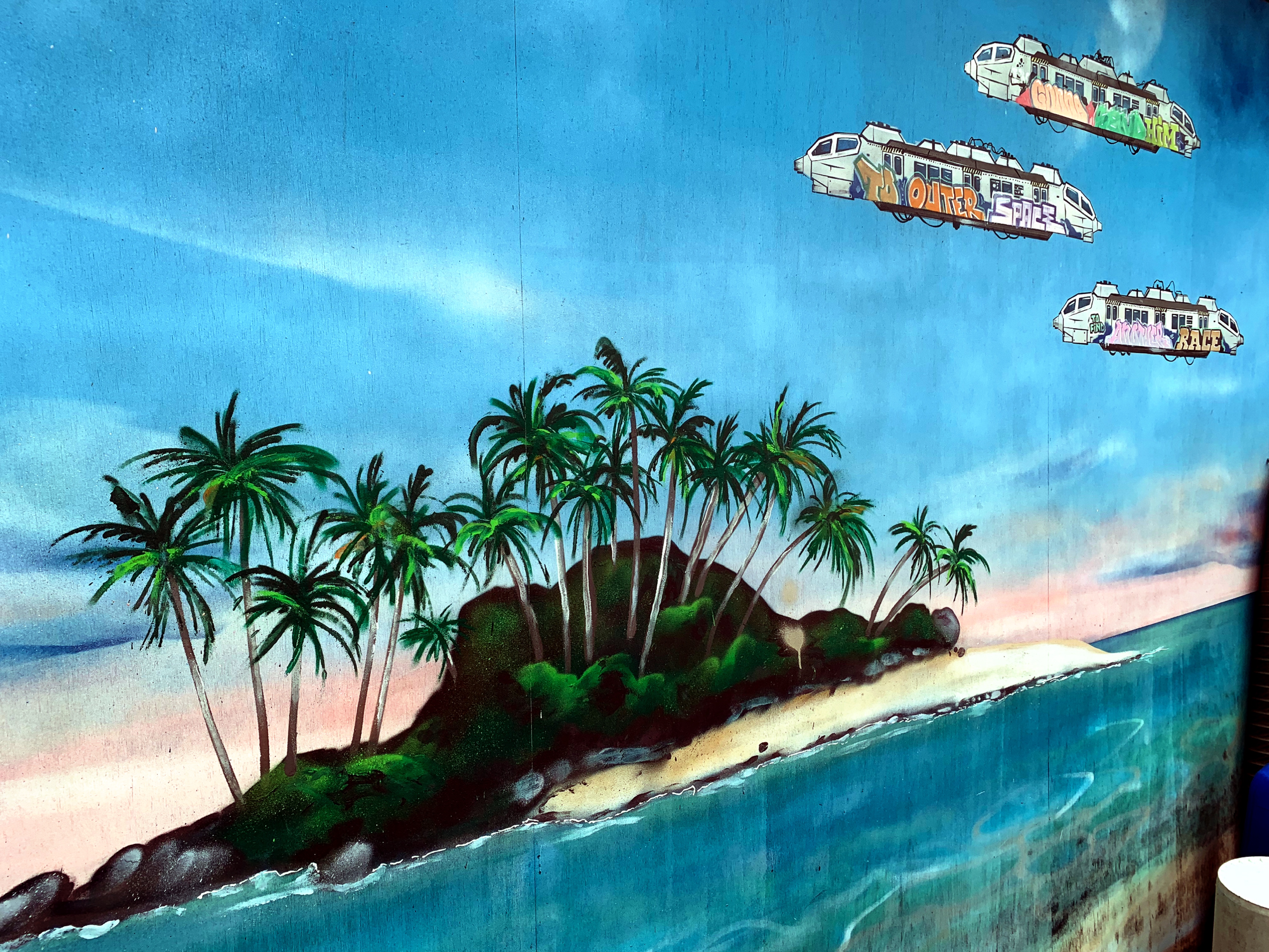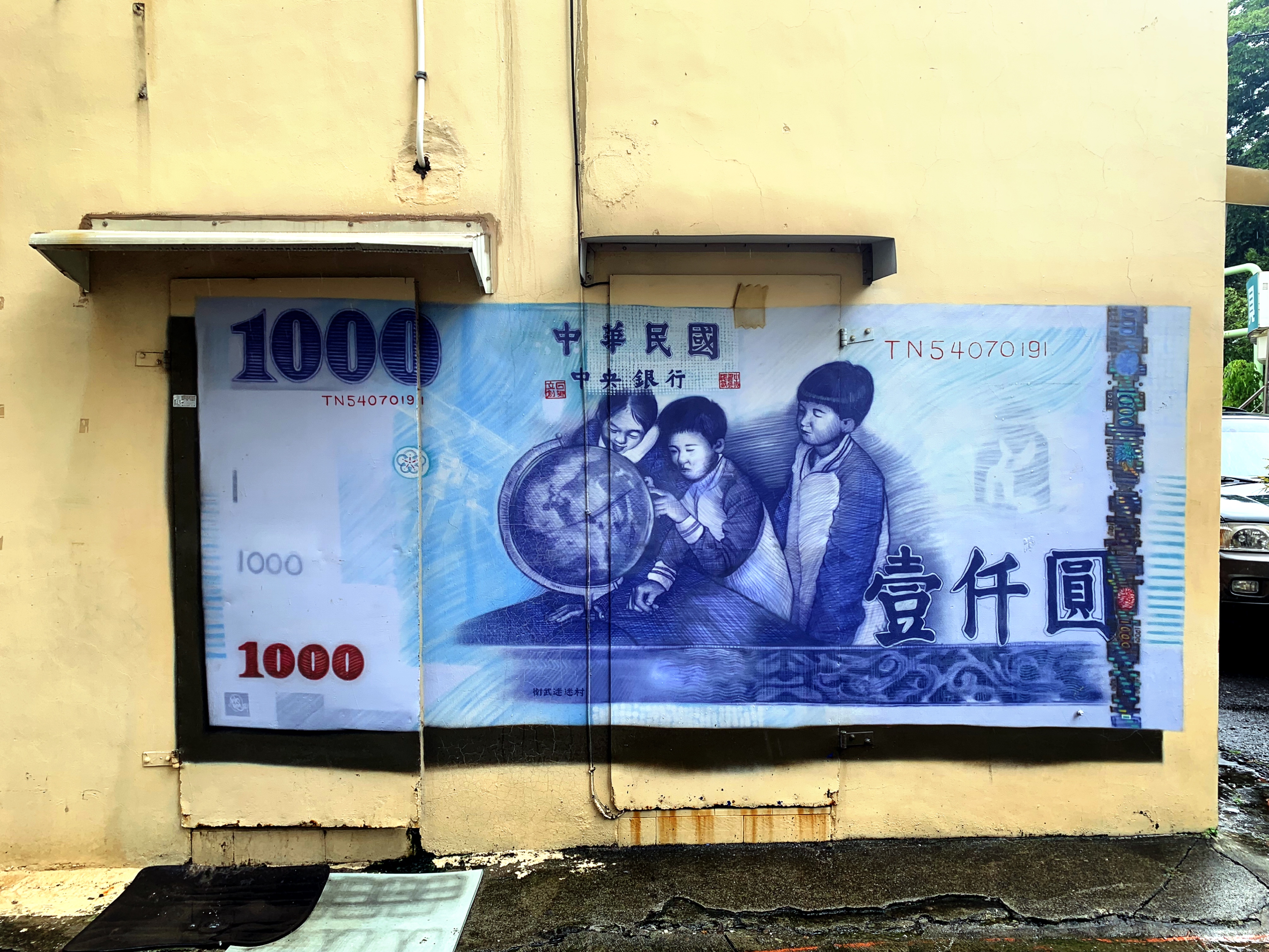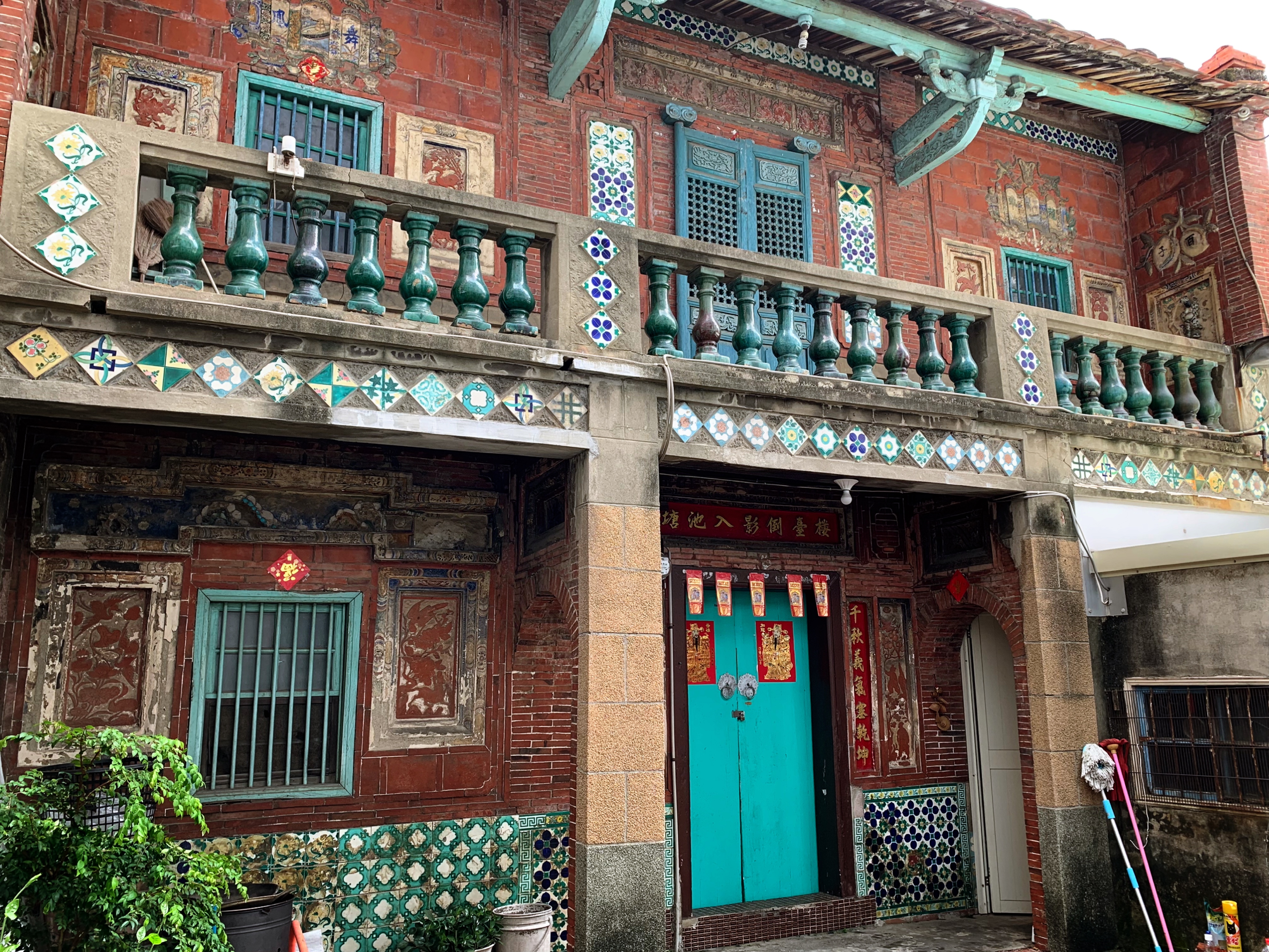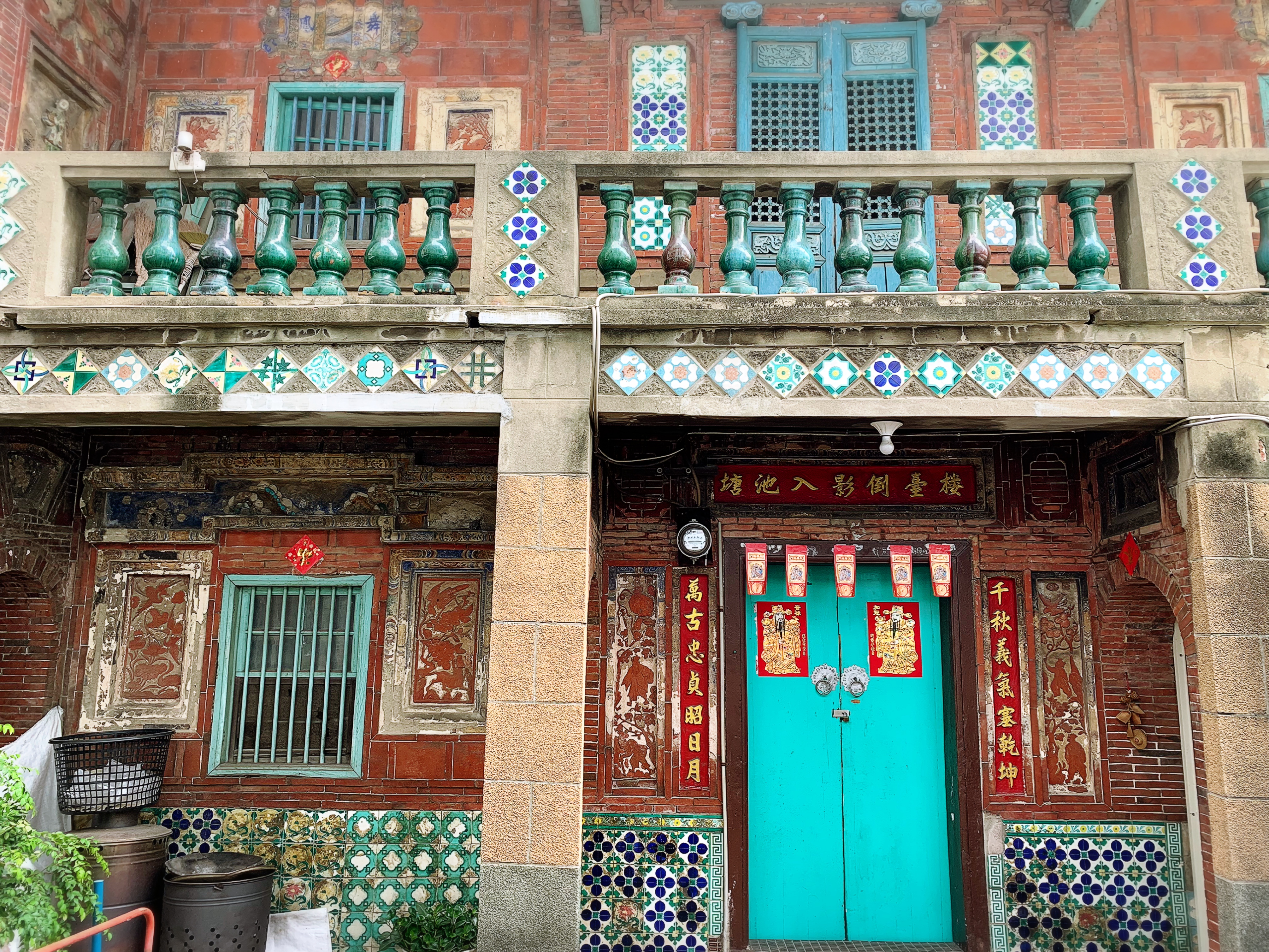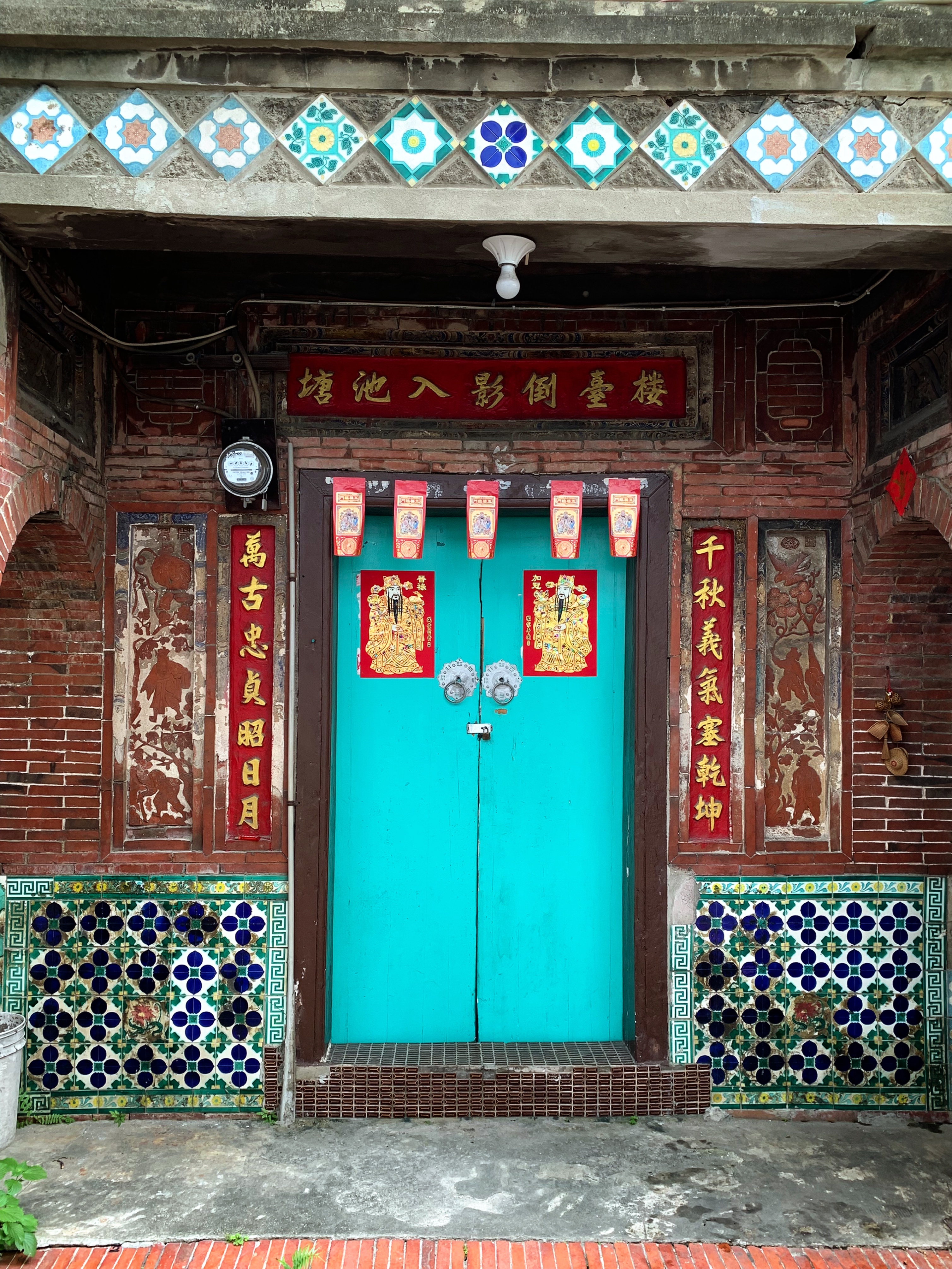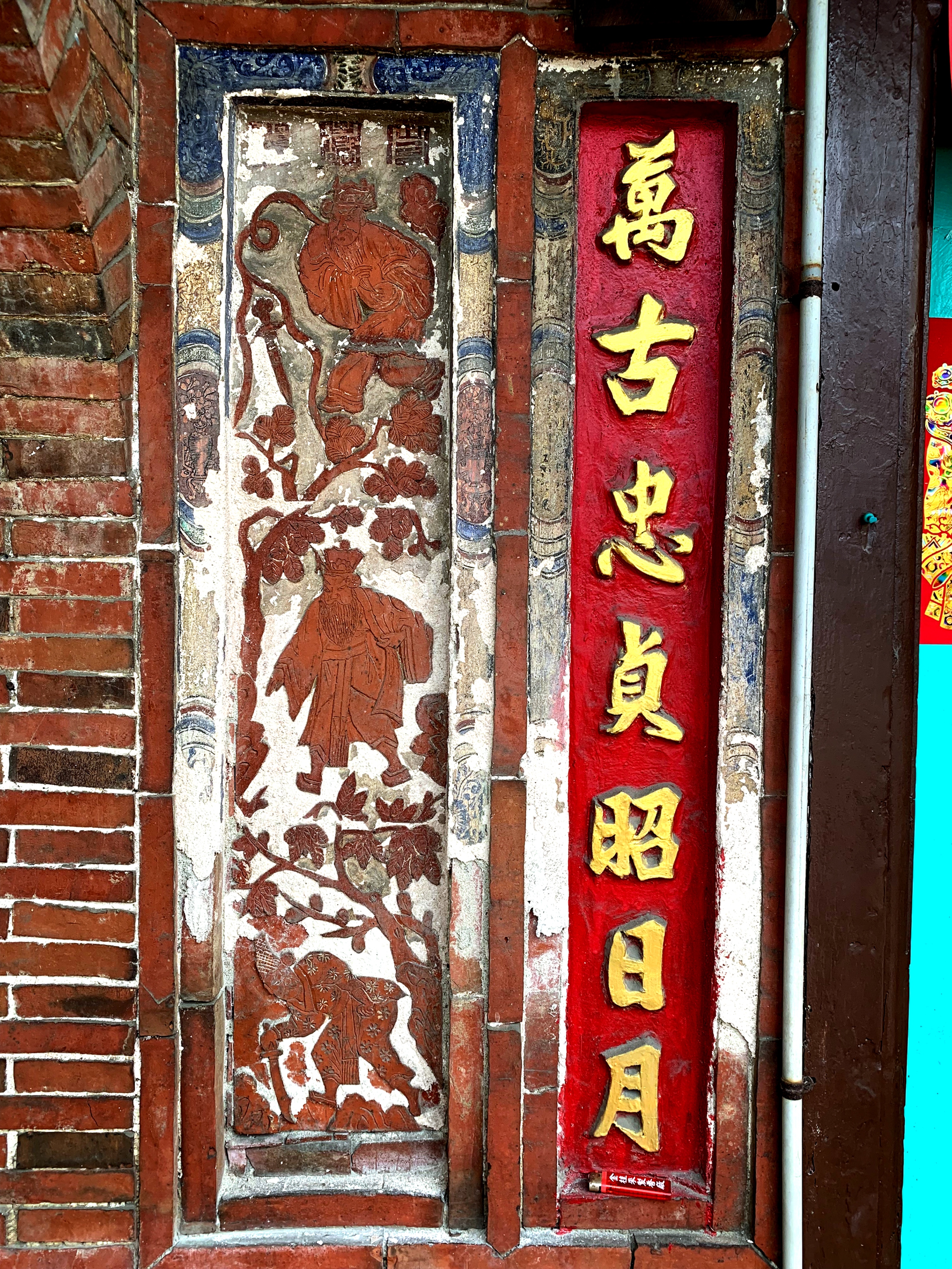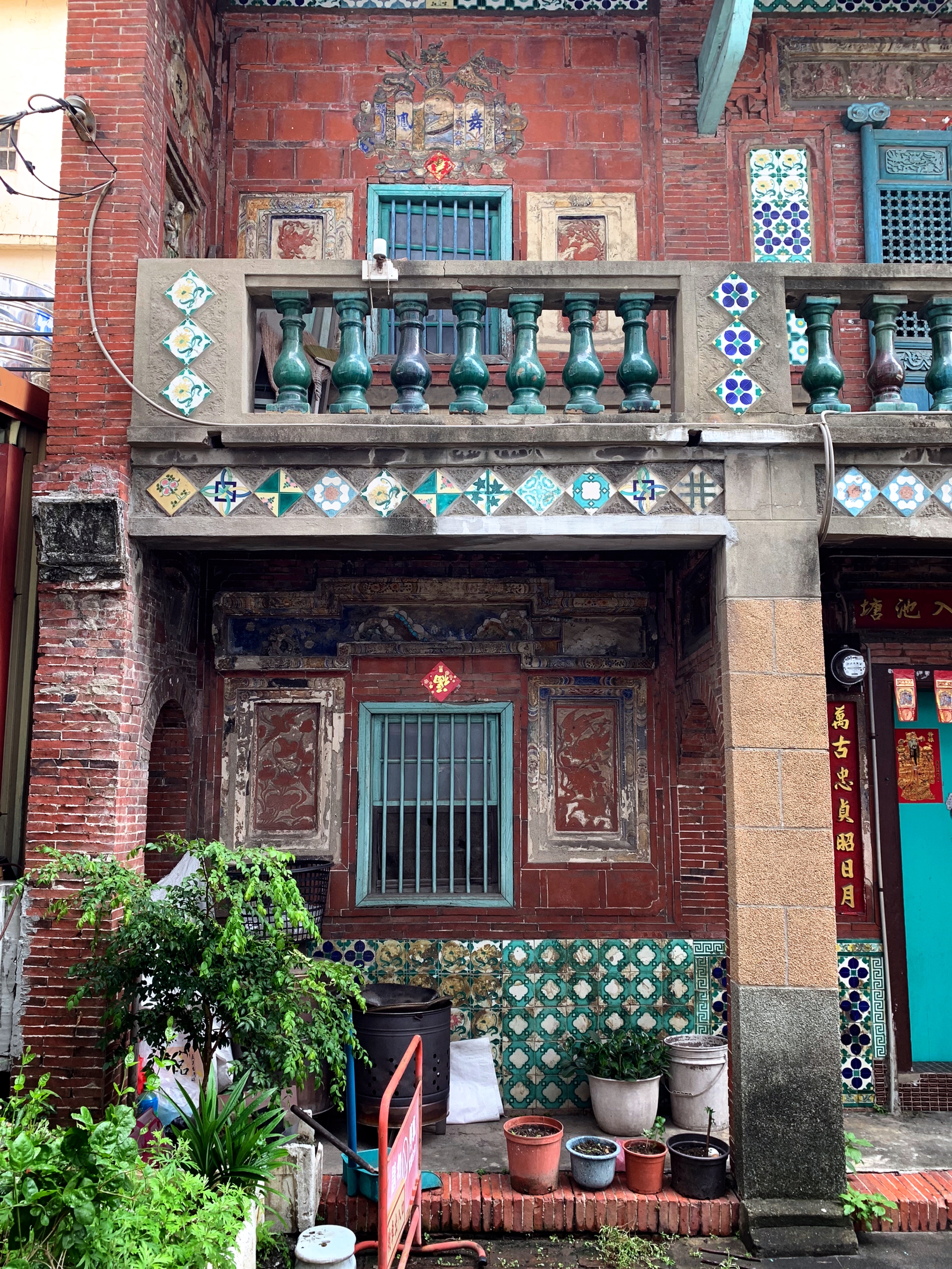
A tour group from China snaps pictures of Liberty Leading the People
In my last post on this topic, I chose to combat disinformation that Taiwan is not a country by clarifying all the ways that it is. Not just because we want it to be so, but because international conventions do, in fact, light a pathway toward recognized Taiwan statehood.
Since the last post was about all the arguments for Taiwan as a nation, in this post I want to address all the (very poor) arguments against it, which so often get flung at Taiwan advocates like a hail of bonobo feces, for daring to take principled stances supporting the nation's essential nation-ness.
If you ignore it, you risk all that disinformation influencing reasonable onlookers who mistake quantity for quality ("well all these Chinese people say Taiwan is Chinese, so there's probably something to that!")
But if you do fight back, it really is like trying to swim in the feces tsunami. Or fight a thousand-headed hydra bursting from Twitter's wine-dark sea. Except the hydra is made of bonobo feces. Please just let me have this metaphor.
This is intentional: it's called gish galloping. The unending pummeling of poorly-considered arguments that are easily refuted, but there are so many flying around that you can't ever get to the end of it all. It tires you out and makes no visible impact.
Because it's difficult to know what to do about this, I put together a list of the most common monkeyturds that get flung around in this kind of gish galloping. That is, all the bad arguments against Taiwan statehood that we hear again and again, changing with the seasons or the news cycle and sometimes resurfacing, all because someone in a United Front Work Department office made a decision about what their botmasters and gormless trolls are going to argue about for awhile, until the Western tankies pick it up while checking Twitter while drinking $8 pourovers and pass it on.
So let's hop on the bonobo feces train!
"International law" says Taiwan is a part of China.
Of course, there is no such law. There is not a single binding international treaty that gives Taiwan to the People's Republic of China, but there are theories based on treaties or conventions that provide some guidance. You can read about those in my previous post on the topic. But "international law says Taiwan is Chinese" is simply not true.
How do I know? Well, name the law, if you can. Show it to me. Is it binding? Does it apply to Taiwan specifically? Was it consented to by all parties involved, including the Taiwanese people?
Bet not.
"The UN says Taiwan is part of China!"
Some insist it's due to UN resolutions on which government represents 'China' -- but if Taiwan is not a part of China, then of course it doesn't matter if it doesn't represent China at the UN!
Not only does it not matter, but citing the UN as the final authority on Taiwan statehood fundamentally misrepresents what that organization does. It does not mint new states, and never has. Did no countries exist before some countries decided to found it? Did the People's Republic of China blink into existence in the 1970s? Did the Republic of China stop existing in 1949 when it lost the war, or the day it lost UN recognition?
Let's keep it going. In 1993 the UN used its warlock-like powers to create the concept of Monaco. A Google search says Monaco's been A Thing since 1297, was officially recognized in 1861 and its constitution dates from 1911, but according to this logic, none of that matters — it wasn't a country at all until the 1990s. Switzerland was clearly neutral in previous wars not due to any principled stance, but apparently because it didn't exist until 2002.
Taiwan doesn't already represent itself in that organization only because, decades ago, it was run by an incompetent, undemocratic and frankly foreign dictatorship that had no care for Taiwan's own interests -- Taiwan could have been Taiwan. A different, better future had been possible, but the KMT robbed Taiwan of that option, along with so much else.
Regardless, other countries can and do engage in relations with Taiwan, both officially (in a few cases) and unofficially. That meets one criteria for statehood under the Montevideo Convention, and the others are met as well.
The UN not giving Taiwan a seat doesn't change that, so clearly the UN doesn't get to decide whether or not Taiwan is sovereign.
"Other countries have One China policies!"
This argument conveniently forgets that the vast majority of those policies merely maintain that one government represents China, and acknowledge that China claims Taiwan. Most if not all of them leave room for an independent Taiwan that does not represent China.
Their policies are not the same as China's "One China Principle" -- an idea which no major power has agreed to verbatim.
Besides, it's really odd for so-called anti-imperialists to point to, say, US or UK policy as the final word on another country's international status. That feels pretty imperialist to me.
Some will say that the US also acknowledges that “all Chinese on either side of the Taiwan Strait maintain there is but one China and that Taiwan is a part of China” (in the Shanghai Communique, often misattrinbuted to the Taiwan Relations Act).
Which was true, if you're talking about a dictatorship in the late 1970s that didn't represent the Taiwanese people, and which no longer exists. Now, Taiwanese don't see themselves that way, and nobody asked them in the 1970s when that policy was penned, rendering the wording somewhat irrelevant. The people on one side of the Taiwan Strait (mostly) no longer maintain that they are “Chinese”, and certainly not that “Taiwan is a part of China”. Acknowledging ‘both sides’ maintain a certain belief is just what it implies: an acknowledgement of what other parties believe. That’s it. Regardless, it becomes meaningless the moment one side no longer believes it.
"Taiwan hasn't declared independence!"
Who would it declare independence from? China? You mean the PRC? It is already independent of that. The ROC? That's a name change and some constitutional reform, two issues that countries usually handle internally. In and of themselves they do not constitute a “declaration of independence’. They don’t need to, as Taiwan is already independent.
I don't go around declaring "I am Jenna!" as some sort of prerequisite for being Jenna. There's no application you fill out. There's no form. There's no DBC -- Department of Becoming a Country -- to which you submit paperwork.
So I struggle to understand what 'declare independence' even means regarding Taiwan. Is Taiwan sovereign and fully autonomous now? Yes? Then tell me -- Taiwan should declare independence from whom?
(Don't worry, if your answer was "the ROC!", we'll get to that shortly.)
"No countries recognize Taiwan!"
Oh, but some actually do -- the ROC has a few diplomatic allies. As we saw in the last post, however, this isn't what makes a country. Every one of those allies could abandon Taiwan, and it would still be a country. When it comes to diplomacy, all Taiwan needs to meet the criteria for an independent nation is the ability to enter into relations with other countries, which it has, and has exercised.
"But they recognize the ROC, not Taiwan as a country!" Yes, and I bet every single person making those claims is aware that the ROC as a sovereign entity from China is functionally nearly identical to Taiwan in the same role. (Not exactly the same: changes will eventually be necessary, but it's close enough for now).
If China would allow any country to recognize both China and Taiwan as distinct entities, many if not most would immediately do so.
It doesn't really matter though: the Montevideo Convention does not stipulate that relations with other states have to be official diplomatic ones, or even that they have to be entered into -- merely that it is possible for that state to do so.
"But it's in the ROC Constitution! Taiwan itself thinks it's part of China!"
I've read the constitution, and it never explicitly claims current PRC territory. The closest you get is Article 4, which states that the boundaries of the ROC are its existing boundaries and "shall not be altered except by a resolution of the national assembly." Cool, but it never states what those borders actually are. The National Assembly no longer exists, so either way this is article is either tautological ("the borders are what they are") or dead law.
Right now, those de facto borders are Taiwan and its outlying islands. There's a mention of Mongolia and Tibet in Article 26, but it's linked to the erstwhile National Assembly, so again...dead law.
Besides, the additional articles to the constitution were very clearly described by Lee Teng-hui as a "two-state solution". Perhaps the constitution is difficult to amend, but new ideas can be agglomerated; for all intents and purposes, Taiwan dropped any claim it once had to PRC territory in the early 1990s. Not even a fabricated '1992 Consensus' about 'one China' (which was not a consensus: even the KMT admits the two sides did not actually agree) can un-jigger Lee's brilliant jiggery.
Some will say this issue is still "controversial" in Taiwan. I say it's not: Taiwan being separate from 'China' is a mainstream position, whether you consider it independence or the status quo.
"What about the 1992 Consensus?"
You mean that meeting in 1992 in which the two sides didn't agree? And the legitimacy of the Taiwan side is deeply questionable as it was at the end of the dictatorship and of questionable diplomatic merit? Yeah, no. No actual Taiwanese were consulted about what should happen at these meetings, and if I'm remembering correctly, the delegates were from the KMT, not diplomats.
But it doesn't matter! They didn't reach an agreement! “We didn’t agree” is the opposite of a “consensus”. What the KMT came away believing was not the same as what the PRC believed as those meetings ended. It was by definition not a consensus at all. (Interestingly, KMT chairperson Eric Chu basically admits this in an entertainingly awful video). This is why the actual term was made up much later: because there was no consensus. History books published around 1999 -- before the consensus was fabricated -- don't mention the 1992 Consensus. Of course they don't, as it didn't exist yet.
"Taiwan's not independent because the ROC is a colonizer!"
This one's tough, because I actually agree with it. The ROC on Taiwan is a colonizing entity that lost a war in the country it came from, and it should be reformed out of existence in favor of a Republic of Taiwan (or any name that voters agree on) with an appropriate constitution.
However, just as we commonly refer to the PRC as 'China', the idea of 'independence' to the general international public means 'not a part of China' -- that is, the PRC.
Saying "Taiwan isn't independent because of ROC colonialism" just sounds like "Taiwan isn't independent" to people who don't follow these issues. It also hands ammunition to tankies, little pinks and the paid botmasters of the United Front Work Department, who love to go on and on about how Taiwan isn't independent because of the ROC. To untrained ears, it sounds like the same point. It's a bit of an own goal: why harm our own cause by making it more confusing to international audiences?
Issues of names, flags and constitutional changes are typically internal matters. Czechia and Eswatini made those choices domestically. Countries amend their constitutions and change flags all the time: there's no international body to appeal to in order to do this. So rather than giving ammunition to tankies, let's perhaps agree it needs to happen, but it's an internal matter.
Functionally, the country I live in now, regardless of its imperfect constitution and weird name, is a country. People commonly call it Taiwan. That's the fact on the ground. Claiming it's "not a country" is basically telling people to ignore the observable world.
"It's been part of China since ancient times!"
No, it hasn't. Most of Taiwanese history has been Indigenous history, period.
The western third of Taiwan -- not very much at all -- was controlled by China from the late 17th to the late 19th centuries. For much of that, China was fairly clear that they either didn't want Taiwan (Shi Lang had to convince the emperor to keep it), or treated it as a "defensive hedge", a "ball of mud beyond civilization". That is, not really part of China. You might even say they treated it like a colony.
China only began to claim all of Taiwan in the late 19th century, though it never effectively governed that final two-thirds. As late as the 1870s, one simply could not say that the Qing actually ruled most of Taiwan.
The most generous amount of time one might apportion in which the same government ruled both China and Taiwan might be a decade or two: perhaps short period before it became a Japanese colony in 1895, and from 1945-1949.
By historical timelines, China's claim on Taiwan is as limp as an overcooked noodle.
"But the turn away from Chinese heritage is DPP brainwashing!"
I've already covered this and the answer is womp womp, you are wrong.
Taiwanese attitudes changed no matter who was in power, and in fact changed more under the KMT than the DPP. The biggest spike was around democratization -- and an election in which the KMT won the presidency.
Democracy and freedom of speech -- the ability to say what you really think -- caused Taiwanese to start saying what they really thought. I'm sorry it doesn't line up with your Great Chinese Culture Embedded in Ancestral DNA worldview, but that's how it is.
"But the US stoked Taiwan independence separatism to sell weapons and encourage conflict for their benefit!"
Wrong again bucko. Seems like you got a little bonobo feces stuck in your ears. Read this and clean it out.
Taiwan home rule has been an idea floating around since at least the 1920s, when the US would have no reason to care, or attempt to start a conflict. It persisted, and grew thanks to KMT brutality (provably so, as you can see by the rise of Taiwanese democracy activists who trace their roots back to the 228 Massacre, approved by Chiang Kai-shek and meted out by Chen Yi). In fact, it was probably a notion as early as 1895, or before that, though the evidence is less clear.
Many of those early Taiwanese independence activists were leftists (but not necessarily pro-CCP), some were openly Marxist. Why would the US court them at that point in history? There are conservative independence activists now -- they tend to be older and rather stuck in the 1970s regarding other attitudes -- but it was a movement inspired by liberal thought, and to some degree, in some groups, Marxist thought.
Pinning this on "the US" isn't only a logic sinkhole, it also denies Taiwanese agency. Do they really need Big Daddy America doing their thinking for them? Are they incapable of critical thought without the CIA spoonfeeding revolutionary sentiment?
Of course not. That's ludicrous.
"The ROC is evil because the Nationalists were the capitalist bad guys who pushed separatism on Taiwan!"
Yep, the KMT sucked pretty hard. No disagreement there. Guess what, they still do! The great news is that they're no longer in power, and they're not really associated with the idea of Taiwanese independence: quite the opposite. To blame the KMT for Taiwanese independence activism is frankly offensive. They're the ones who executed those same activists, often without trial. Taiwan independence advocates by and large can't stand the KMT. It's absolutely strange to act like they're one and the same.
If you honestly think that "Taiwanese independence activists" and "the KMT" are natural partners, feel free to read any of the links in this post. It will disavow you of that notion very quickly.
“You’ll understand that Taiwan is Chinese if you just read about the issue!”
This only matters insofar as the Pink Floyd guy decided he was a late-blooming Sinologist. I have read up on the issue — in fact, Brendan and I read every general history of Taiwan available in English and compared them. I’ve read plenty of books that discuss specific areas of Taiwanese history.
What have I learned from “reading about the issue”? That Taiwan isn’t Chinese and arguably never really has been.
As Brendan likes to say, Taiwan advocates actually want you to read more about Taiwan. People who think annexation is an acceptable outcome might say “read more”, but they don’t expect you actually will. They want you to listen to them, not read further. I’ve never seen them recommend, say, a book. I’ve just recommended about 20. Please read them.
“But it’s the only way to peace! Taiwan independence is destabilizing!”
The opposite is true. Taiwan will never consent to be annexed by China, and simply wants to maintain the sovereignty it already enjoys. There is no peaceful resolution that ends with Taiwan as a part of China, because Taiwan will always fight back, at least as long as the current Chinese government is in power (but likely after that as well — and I do believe the CCP will eventually fall.) That is an assured path to war. It’s unlikely to be a short war, though it may fall out of the news cycle as the ongoing violence will be within Taiwan.
I don’t want that, and you probably don’t either.
So if you want to avoid that war, advocate China not attacking Taiwan. It is very easy to not invade one’s neighbor (a lesson Russia might’ve done well to learn). Doing so is a choice, not an imperative, and it’s a choice China can choose not to make. China’s choices are not inevitabilities dropped from the heavens. Their threats are not immutable. Their anger and their red lines and temper tantrums? These are choices, and should be treated as such.
That’s the path to peace. So the outcome most likely to avoid war is one in which Taiwan remains separate from China.
Got any more?
I'm happy to expand this post with more gish gallops, strawmen, goalpost moving or other tactics that little pinks use to make life on social media unbearable if you care about an issue. Let me know, and if I get some good responses I'll add them to the post.
